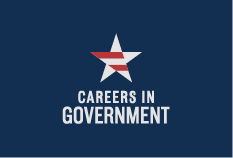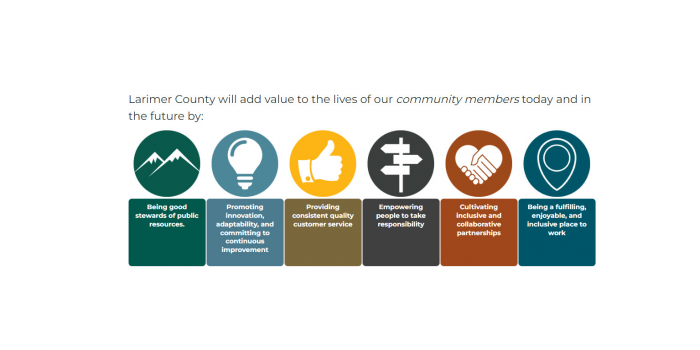Revolutionizing Local Government Recruitment: The Impact of Artificial Intelligence

CAREERS IN GOVERNMENT
Since its pioneering launch in 1996, Careers In Government has stood at the forefront of the marketplace as the inaugural job board, solidifying its position as the premier destination for state and local government career opportunities. Today, it remains unrivaled as one of the nation’s leading State and Local Government Job Board and Career Resource Center. With a steadfast commitment to innovation, we harness cutting-edge technology to redefine talent acquisition, offering unparalleled service that empowers both public sector employers and recruiters. Our platform is designed to connect excellence with opportunity, setting the benchmark for success in government recruitment.
In the government sector, AI is rapidly transforming traditional recruitment practices, offering unique solutions tailored to the complexities of public service hiring. Government agencies, faced with the challenge of attracting and retaining top talent amidst evolving workforce dynamics, are increasingly turning to AI to streamline their recruitment processes and enhance decision-making. Here are some key ways AI is impacting recruiting in the government space:
Efficiency in Screening and Selection
Government agencies often receive a high volume of applications for positions, making the initial screening process time-consuming. AI-powered applicant tracking systems (ATS) equipped with natural language processing (NLP) capabilities can automatically scan and assess resumes, identifying top candidates based on predefined criteria. This not only accelerates the screening process but also ensures a more objective evaluation of applicants.
Bias Mitigation and Diversity Promotion
Addressing bias in recruitment is a priority for government agencies striving for inclusivity and diversity in their workforce. AI algorithms can help mitigate unconscious biases by focusing solely on candidates’ qualifications and skills, rather than demographic information. Furthermore, AI-driven tools can analyze recruitment data to identify and address potential biases in hiring practices, fostering a more equitable selection process.
Optimized Talent Pipelining
Building and maintaining a robust talent pipeline is essential for government agencies to meet their staffing needs efficiently. AI-powered analytics can analyze historical recruitment data to predict future hiring requirements and identify talent gaps. By proactively sourcing and engaging with potential candidates, agencies can ensure a steady supply of qualified individuals to fill critical roles.
Personalized Candidate Engagement
AI-enabled chatbots and virtual assistants are revolutionizing candidate engagement in government recruitment. These tools can interact with applicants in real-time, answering queries, providing updates on application status, and guiding candidates through the recruitment process. By offering personalized assistance round-the-clock, government agencies can enhance the candidate experience and strengthen their employer brand.
Enhanced Security and Compliance
Government agencies handling sensitive information must adhere to stringent security and compliance regulations throughout the recruitment process. AI-driven solutions equipped with advanced encryption and cybersecurity features can safeguard applicant data and ensure compliance with privacy laws. Additionally, AI-powered auditing tools can monitor recruitment practices for adherence to regulatory requirements, minimizing the risk of legal or security breaches.
Predictive Analytics for Strategic Decision-Making
AI algorithms can analyze vast datasets to identify trends and patterns in recruitment, enabling government agencies to make data-driven decisions. By leveraging predictive analytics, agencies can anticipate future hiring needs, optimize resource allocation, and implement targeted recruitment strategies to attract top talent. This proactive approach ensures that government organizations remain agile and responsive to evolving workforce demands.
Remote and Virtual Recruitment Solutions
The shift towards remote work and virtual recruitment events has accelerated in recent years, necessitating innovative solutions for candidate engagement. AI-powered virtual recruitment platforms offer immersive experiences, allowing government agencies to conduct interviews, assessments, and networking sessions online. These platforms leverage AI algorithms to match candidates with suitable opportunities based on their skills and preferences, facilitating seamless remote recruitment processes.


AI is revolutionizing recruitment practices in the government sector, offering unprecedented opportunities for efficiency, equity, and strategic decision-making.
CAREERS IN GOVERNMENT
AI-Driven Candidate Matching
Government agencies are increasingly leveraging AI-powered platforms to match candidates with job opportunities more effectively. These platforms use algorithms to analyze candidate profiles and job requirements, ensuring a better alignment between applicants’ skills and agency needs. As a result, government recruiters can identify qualified candidates more efficiently, reducing time-to-hire and improving overall recruitment outcomes.
Remote Hiring and Onboarding Solutions
The COVID-19 pandemic has accelerated the adoption of remote hiring and onboarding practices across the public sector. AI-enabled virtual recruitment platforms facilitate seamless remote interactions between candidates and hiring managers, enabling interviews, assessments, and onboarding processes to be conducted entirely online. These platforms leverage AI algorithms to automate administrative tasks, such as scheduling interviews and collecting candidate feedback, streamlining the virtual recruitment experience for both parties.
AI-Powered Talent Analytics
Government agencies are investing in AI-driven talent analytics tools to gain deeper insights into their workforce demographics, skills gaps, and recruitment trends. By analyzing vast amounts of HR data, including employee demographics, performance metrics, and turnover rates, these tools help agencies identify areas for improvement in their recruitment strategies and talent management practices. Moreover, AI algorithms can predict future workforce needs based on demographic shifts and retirement projections, enabling agencies to proactively address talent shortages and succession planning challenges.
Enhanced Accessibility and Inclusivity
AI-driven recruitment technologies are improving accessibility and inclusivity in government hiring processes. For example, AI-powered chatbots and virtual assistants equipped with natural language processing capabilities can assist candidates with disabilities in navigating the application process by providing text-based or voice-activated support. Similarly, AI-driven language translation tools enable government agencies to reach a broader pool of candidates by translating job postings and recruitment materials into multiple languages, fostering diversity and inclusion in the workforce.
Ethical and Transparent AI Use
With the increasing reliance on AI in recruitment, government agencies are prioritizing ethical and transparent AI use to ensure fairness and accountability in hiring practices. Regulatory frameworks and guidelines are being developed to govern the ethical use of AI in recruitment, addressing concerns related to algorithmic bias, privacy, and data protection. Government agencies are also investing in AI audit and oversight mechanisms to monitor and evaluate the performance of AI-driven recruitment systems, ensuring compliance with legal and regulatory requirements.
Partnerships and Collaboration
Government agencies are partnering with AI vendors, research institutions, and other stakeholders to harness the full potential of AI in recruitment. Collaborative initiatives aim to develop AI solutions tailored to the unique needs and challenges of the public sector, fostering innovation and knowledge-sharing across government agencies. Moreover, cross-sector collaborations enable government agencies to leverage best practices and lessons learned from other industries, accelerating the adoption and implementation of AI in recruitment.
In conclusion, AI is revolutionizing recruitment practices in the government sector, offering unprecedented opportunities for efficiency, equity, and strategic decision-making. By embracing AI-powered solutions, government agencies can overcome recruitment challenges, attract top talent, and build a diverse and high-performing workforce capable of meeting the demands of public service in the digital age.
Want new articles before they get published? Subscribe to our Awesome Newsletter.

CAREER ADVICE

GOV TALK




